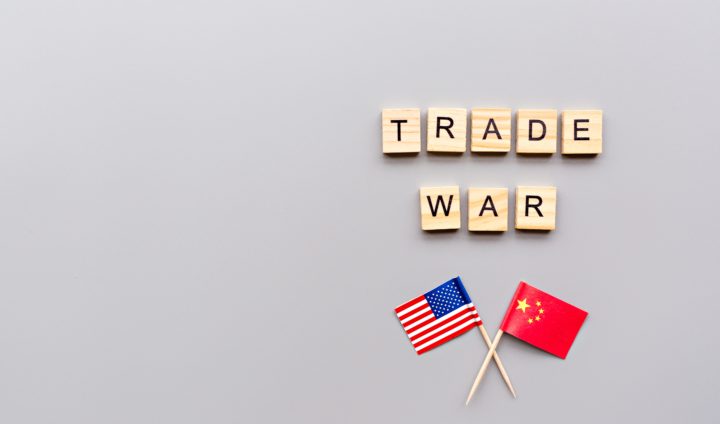China has retaliated against the tariffs imposed by former US President Donald Trump by introducing a 34% tax on American goods, alongside new restrictions on the export of certain rare earth materials. This move intensifies the ongoing trade war between the two economic giants, as Beijing seeks to counteract Washington’s aggressive policies. Trump had previously announced an additional 34% tariff on Chinese goods, on top of the 20% levy implemented earlier in the year, bringing the total duties to 54%.
On Friday, China’s Ministry of Finance confirmed that the new tariffs would take effect from 10 April. Beijing had already imposed a 15% tariff on imports of US coal and liquefied natural gas (LNG) in response to Washington’s earlier 10% levies on Chinese products. In addition to the increased tariffs, China has implemented stringent export controls on key minerals and industries, restricting trade with the United States. The Ministry of Commerce defended these measures, stating that they are intended to uphold national security, protect national interests, and fulfil international obligations such as non-proliferation.
Trump responded to China’s countermeasures with a strongly worded social media post, declaring in capital letters that “CHINA PLAYED IT WRONG, THEY PANICKED – THE ONE THING THEY CANNOT AFFORD TO DO!” Despite his reaction, Beijing has pressed forward with its opposition to Trump’s trade policies, filing a formal complaint with the World Trade Organization (WTO). The Chinese delegation argued that the US tariffs breach WTO regulations and has requested consultations on the matter. Furthermore, China has tightened its export controls, restricting the shipment of medium and heavy rare earths such as samarium, gadolinium, terbium, dysprosium, lutetium, scandium, and yttrium to the US. Additionally, Beijing has placed 16 American entities on its export control list, banning the sale of dual-use goods to these companies, while another 11 firms have been added to its “unreliable entities” list, subjecting them to punitive measures.
The economic repercussions of these developments have been swift. US stock futures dropped sharply on Friday, wiping $2.4 trillion off the value of American equities, as Wall Street braced for further volatility. Tech giants with strong manufacturing ties to China and Taiwan, such as Apple and Nvidia, saw their shares fall in pre-market trading. In Japan, a key US trading partner, Prime Minister Shigeru Ishiba described the situation as a “national crisis”, with banking shares plunging and Tokyo’s stock market heading for its worst week in years. European stocks also suffered their largest weekly losses in three years. However, US Secretary of State Marco Rubio downplayed fears of an economic collapse, arguing that the markets were merely adjusting to a significant shift in global trade dynamics and would stabilise over time.







